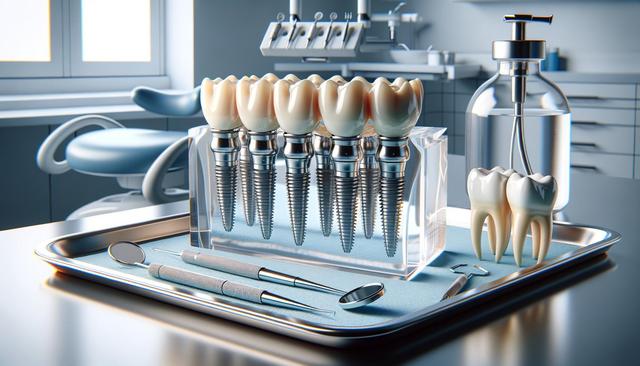What Are Full Mouth Dental Implants?
Full mouth dental implants are a comprehensive tooth replacement option designed for individuals who are missing all or most of their teeth. Unlike removable dentures, these implants are surgically placed into the jawbone and serve as a permanent foundation for fixed or removable prosthetic teeth. Depending on the patient’s needs and oral health condition, a full arch may be supported by four to eight implants per jaw. This approach offers improved stability, function, and appearance compared to traditional dentures.
The process typically involves several stages, including initial consultation and planning, implant placement, healing time (osseointegration), and the final placement of crowns or bridges. Patients considering this procedure should be in good general health and have sufficient bone density, although bone grafting can sometimes be performed when necessary to support the implants.
Factors Affecting Full Mouth Dental Implant Prices
The cost of full mouth dental implants varies significantly depending on several factors. While prices can differ from one region or clinic to another, the main elements that influence the cost include:
- Number and type of implants used
- Materials for crowns or bridges (e.g., porcelain, zirconia)
- Additional procedures like bone grafting or sinus lifts
- Clinic location and associated overhead costs
- Expertise and experience of the dental team
On average, the total cost for full mouth implants can range from several thousand to tens of thousands of dollars per arch. It’s important to note that some clinics may offer package deals that include consultation, imaging, surgery, prosthetics, and follow-up care. Patients should request detailed cost breakdowns to understand what is covered and compare offerings from different providers.
Hospitals and Clinics Offering Full Mouth Implants
Many specialized dental hospitals and clinics provide full mouth implant services, often within dedicated implantology departments. These institutions may vary in scale from private dental centers to university-affiliated hospitals. Facilities with advanced diagnostic tools such as 3D imaging, digital impressions, and computer-guided surgery typically offer more precise and efficient treatment planning.
When choosing a clinic, patients should consider:
- Accreditation and licensing
- Availability of in-house specialists
- Technology used in diagnosis and treatment
- Cleanliness and patient safety protocols
- Transparent pricing and financing options
Reading verified patient reviews and consulting with others who have undergone similar procedures can also help in making an informed choice.
How to Identify Reputable Implant Specialists
The success of full mouth dental implants heavily depends on the skill and experience of the dental professional performing the procedure. Specialists in this field typically have advanced training in prosthodontics, oral surgery, or periodontics. Some may also be members of recognized implantology associations, which indicates a commitment to ongoing education and adherence to industry standards.
Key aspects to look for in a qualified implant specialist include:
- Board certification in a relevant dental specialty
- Years of experience with full mouth reconstruction cases
- Portfolio of before-and-after patient cases
- Use of modern technology and surgical techniques
- Clear communication and patient-centered care
Scheduling a consultation is a good opportunity to assess the dentist’s approach and ask questions about the procedure, recovery time, and long-term maintenance.
What to Expect During and After the Procedure
Undergoing full mouth dental implants is a multi-phase process that usually takes several months from start to finish. The initial stage includes diagnostic assessments and treatment planning. Implant placement is generally performed under local anesthesia or sedation, and patients may experience some swelling and discomfort afterward, which typically resolves within a week.
During the healing phase, known as osseointegration, the implants fuse with the jawbone. This step is crucial for long-term stability and can take several weeks to months. Once healing is complete, the final prosthetic teeth are attached to the implants. These restorations are designed to mimic natural teeth in appearance and function.
Post-procedure care is vital for implant longevity. Patients should:
- Maintain excellent oral hygiene
- Avoid hard or sticky foods during healing
- Attend regular follow-up visits
- Address any signs of infection or discomfort promptly
With proper care, full mouth dental implants can last for many years, significantly improving the patient’s quality of life.
Conclusion: Making an Informed Decision
Choosing full mouth dental implants is a significant investment in both time and money, but for many, the outcome can be life-changing. By understanding the key factors that affect pricing, identifying reputable clinics and specialists, and knowing what to expect throughout the process, patients can make informed decisions that align with their health needs and financial situation. For those seeking a stable, long-term solution to tooth loss, full mouth implants offer a dependable alternative when performed by skilled professionals in well-equipped facilities.


